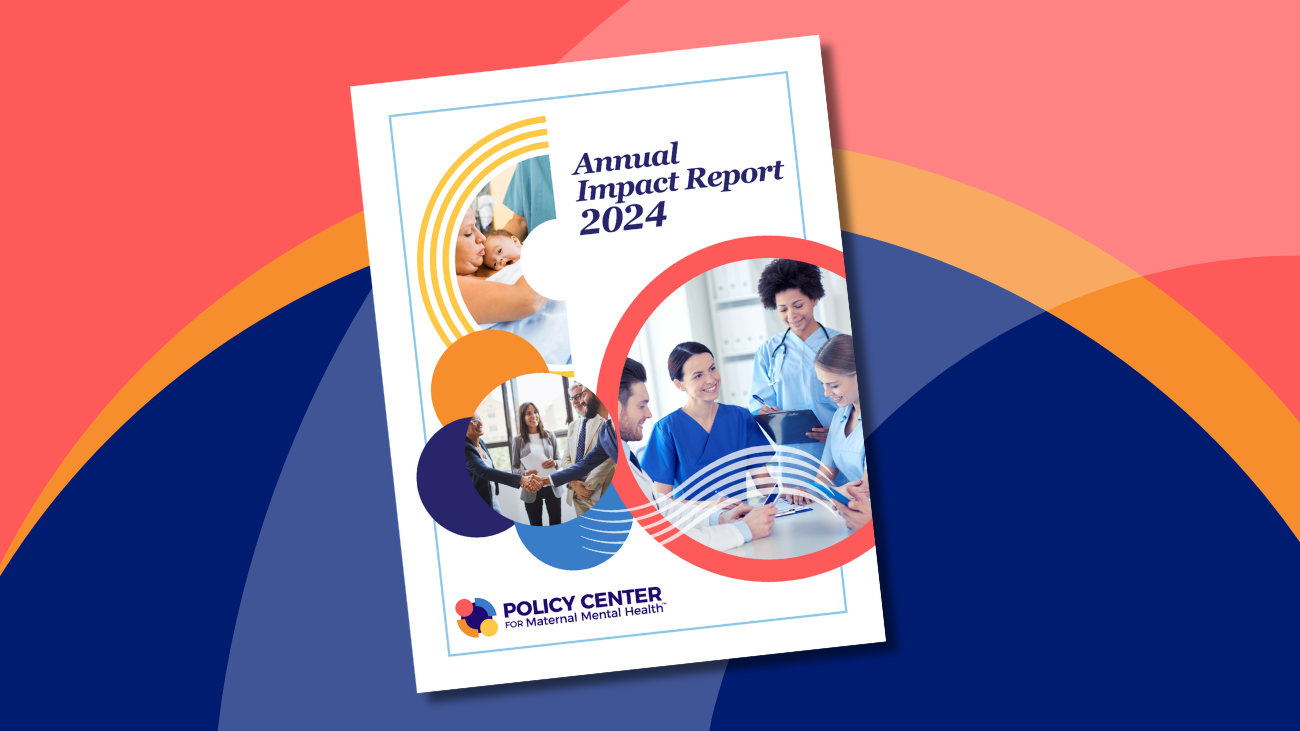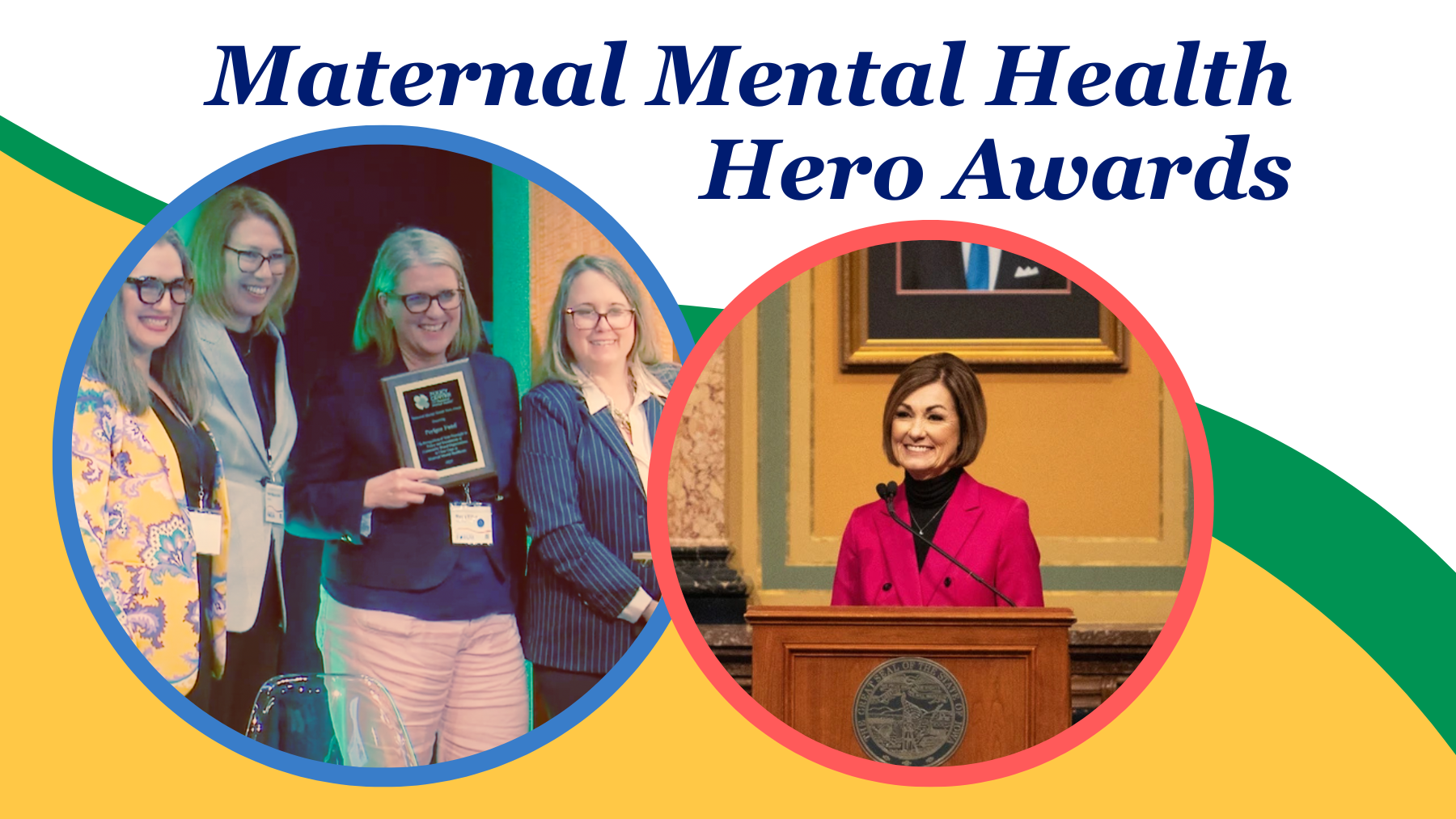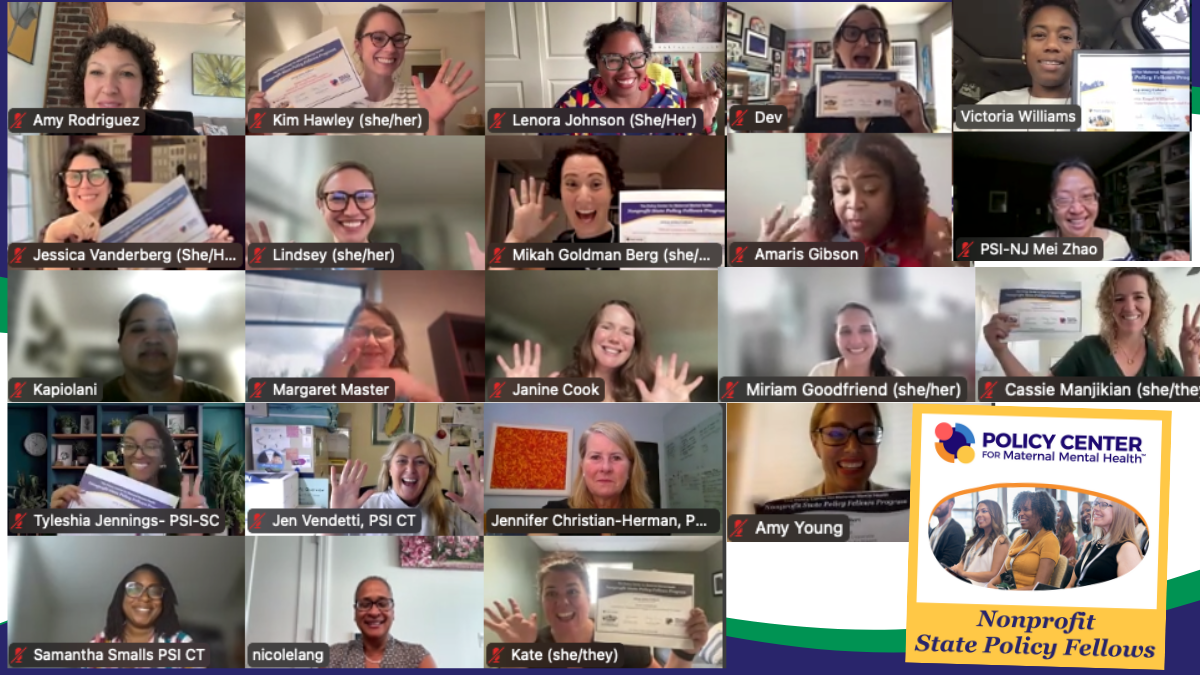A Letter From the Board Chair and CEO
Dear current and future supporters,
It has been an extraordinary year for the maternal mental health (MMH) field and for the Policy Center for Maternal Mental Health (“Policy Center”). We are proud to continue serving as a recognized “system orchestrator” and “field catalyst” (as identified by Bridgespan in 2022), driving transformative change and offering critical insights across sectors.
Our highlights of the year include:
In March, our annual Maternal Mental Health FORUM drew nearly 800 attendees, including high-profile speakers from leading organizations and the White House, underscoring the event’s role as a hub for systems-change dialogue.
In May, Maternal Mental Health Awareness Month:
- The Federal Maternal Mental Health Task Force, which the Policy Center championed, released its inaugural report to Congress and an initial strategic plan. We are honored to have contributed to shaping the priorities.
- We partnered with members of Congress to declare the first week of May Maternal Mental Health (MMH) Awareness Week at the Federal level for the first time.
- We also released our second annual Maternal Mental Health Report Card at a Congressional briefing, which illustrated that states made minimal progress with the U.S., inching up from a D to a D+.
To amplify awareness of MMH challenges and catalyze change, we introduced the “Maternal Mental Health by the 20s” messaging framework:
- 20% of the perinatal population will suffer from an MMH disorder like postpartum depression
- Less than 20% will be screened for these disorders
- Less than 20% who suffer will receive treatment
- Roughly 20% of maternal deaths are due to suicide
These facts were added to our new website, which also launched in May.
The Policy Center continued to catalyze progress through our other core programs this year:
Knowledge Sharing – Developing data-driven actionable insights through:
- Nearly 60 articles, reports, fact sheets, issue briefs
- Speaking at 20 external events and meetings
- Hosting 8 roundtable discussions, webinars, and congressional briefings
Learning Communities and Workforce Development:
- We convened nearly 60 government and non-profit leaders in our State Policy Fellows programs, including leaders from 12 state Medicaid Agencies
- We educated nearly 7,000 individuals through quarterly Maternal Mental Health 101 webinars and trained 943 providers through the 8-session certificate training course, both in partnership with Postpartum Support International.
- We also hosted our second national MMH peer-support add-on training for state-certified peer specialists with our partners at POEM/Mental Health America of Ohio.
Our work caught the eye of major media. Highlights include:
- NBC News: New Task Force Prescribes Mental Health Support to Curb Maternal Deaths
- TIME: Why Maternity Care is Underpaid
- NPR: Pay First, Deliver Later: Some Women Are Being Asked To Prepay for Their Baby
- The Hill: 70 Percent of U.S. Counties Don’t Have Enough Maternal Mental Health Providers
- CBS Sunday Morning: Recognizing the Signs of Postpartum Depression
- Good Morning America: As More States Pass Laws Addressing Maternal Mental Health, Barriers to Access Continue
It was also bittersweet to launch Mom Congress as an independent non-profit organization. The Policy Center created the project in 2019, in collaboration with other regional and national non-profits, to bring mothers and advocates to Capitol Hill to share their stories to advance maternal mental health, maternal health, early parenting support, paid leave, and child care.
We are grateful for the partnership of philanthropic funders who have helped to make this work possible, including capacity funders:
- Perigee Fund
- ZOMA Foundation
Further, the following project funders have enabled critical work:
- California Health Care Foundation
- Cigna Foundation
- Esther A. & Joseph Klingenstein Fund
- Flourish Impact Fund
- Sage Therapeutics
- W.K. Kellogg Foundation
In closing, we are grateful to you for joining us on our journey to improve maternal mental health in America.
We invite you to review the full report below and to follow our work in 2025, by signing up for our newsletter and following us on LinkedIn or X.
Together, we are moving mountains for the wellbeing of mothers and families.

Carla Eckhardt Taracena, MSc

Joy Burkhard, MBA – CEO
Table of Contents:
Letter from the Board Chair and CEO
Reflections on 2024 & Strategic Vision for 2025
Mission, Vision, Values and Brand
Our Mission
To close gaps in maternal mental health care.
Our Why
Preventing, detecting, and treating MMH Disorders reduces family distress, pre-term and low-birth deliveries, infant mortality and maternal suicide, and substance use/overdose (the leading causes of maternal mortality). It improves a mother’s ability to care for her infant/children and gives mothers, infants, and families optimal opportunity to thrive.
Our Vision
A healthcare system that routinely detects, and implements effective interventions and treatments for maternal mental health disorders for every mother, every time.
Our Niche
The Policy Center is known for our expertise in understanding the complex health delivery system, including how to drive change through:
- Integration of mental health care into medical health care
- provider payment strategy
- insurance/coverage benefit design
- provider network accessibility
This knowledge has helped the Policy Center identify the most pressing barriers and interventions to improving screening and treatment.
Our Values
- Innovation & Creativity
- Courageousness & Urgency
- Collaboration & Partnership
- Empathy & Understanding
- Excellence & High-Performance
Our Focus Areas
We focused our work on these three areas:
Behavioral Health Integration in OB Clinics
Detection of maternal mental health disorders is not routine in America. Screening currently occurs less than 20% of the time, and less than 20% of patients receive the treatment they need.
- We believe obstetric providers are well-positioned to detect these biological disorders, just as they do for conditions like gestational diabetes. Professional associations such as the American College of Obstetricians and Gynecologists agree that it’s critical OB providers deliver routine screening, preliminary diagnosis, and treatment for maternal mental health, starting in pregnancy.
Access To and Payment For Care
The U.S. is leading the world in research and development of treatments for maternal mental health. Yet, access to care is elusive due to insurer/payor policies and payment challenges.
- We believe it’s critical that maternal mental health care is adequately paid for, incentivized, and measured, and that quality management strategies are implemented to ensure care is provided according to guidelines.
Implementing Postpartum Care
The majority of maternal deaths happen in the postpartum period, and the majority are due to suicide and overdose. Yet, the U.S. doesn’t provide postpartum care.
- We believe women should be monitored throughout the postpartum period for optimal health and well-being.
- Currently, they are provided with just one visit postpartum, even though nearly all 50 states now provide Medicaid coverage through 12 months.
- Further tending to women and families during this fragile and opportune time is linked to improved family bonding, child development, parental well-being, and the ability of mothers and families to work and find life balance.
Our Strategies and How We Work
In addition to designing strategies to advance the three focus areas above, we use these three strategies to conduct our work:
Critical Content
- We identify, develop, and track key measure sets, conduct research, publish reports and fact sheets, and synthesize complex Federal policies and programs.
- We host webinars, Congressional briefings, and our annual FORUM. We present these findings at external events and conferences and share them with the media and government.
Communities of Practice
- We gather leaders who are in a position to influence change through our State Policy Fellows programs and convene payors and hospitals to advance systems change.
Commanding Action
- We set state and Federal policy priorities, and submit letters to state Medicaid Agencies, Congress, and more.
Co-Laborating
- We partner, pilot, and lead research to close gaps in maternal mental health.
Our Team
Staff and Contract Team:

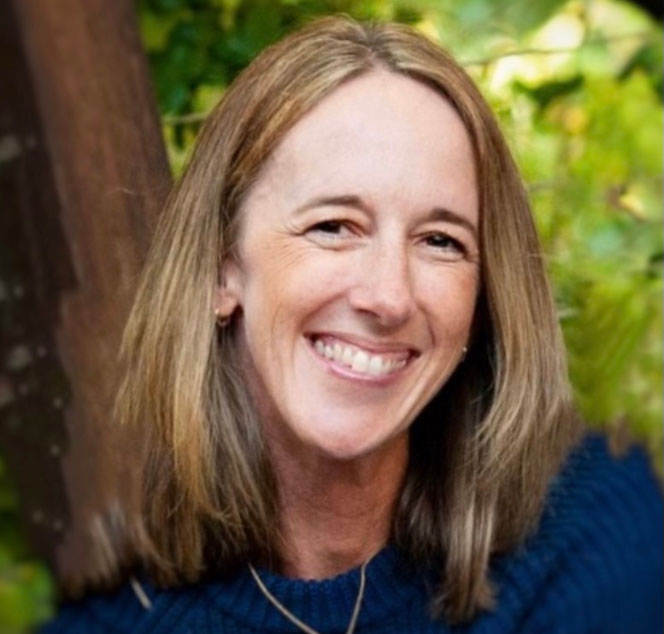

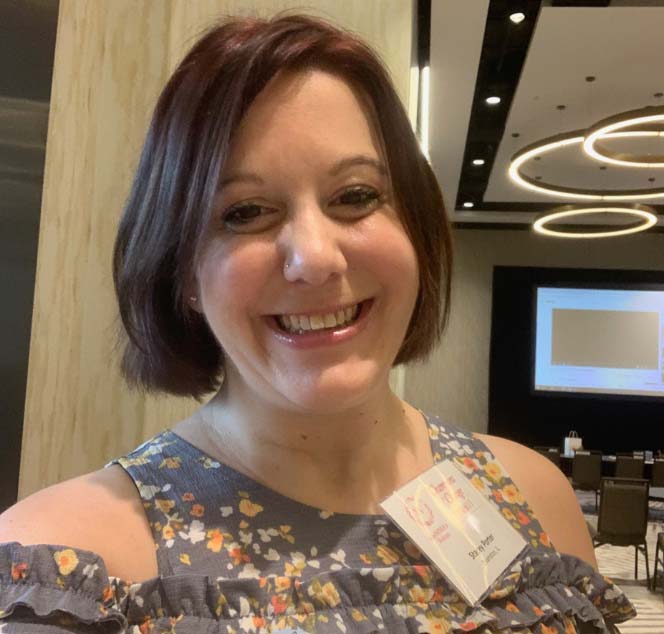


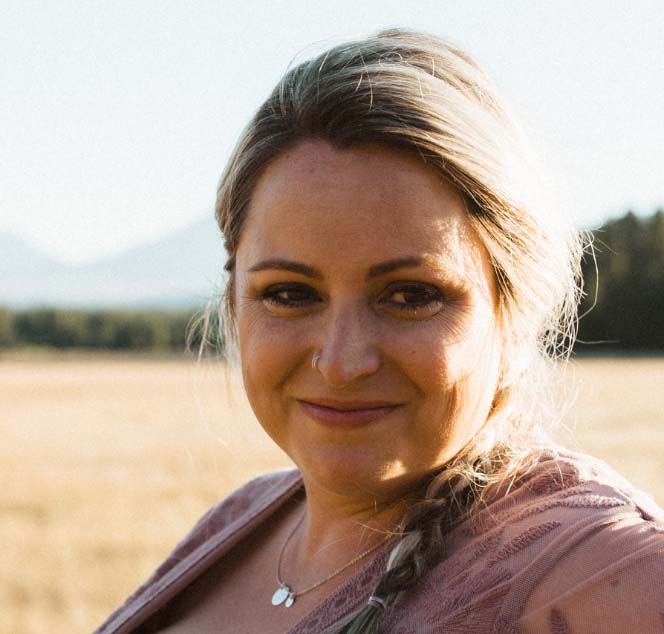




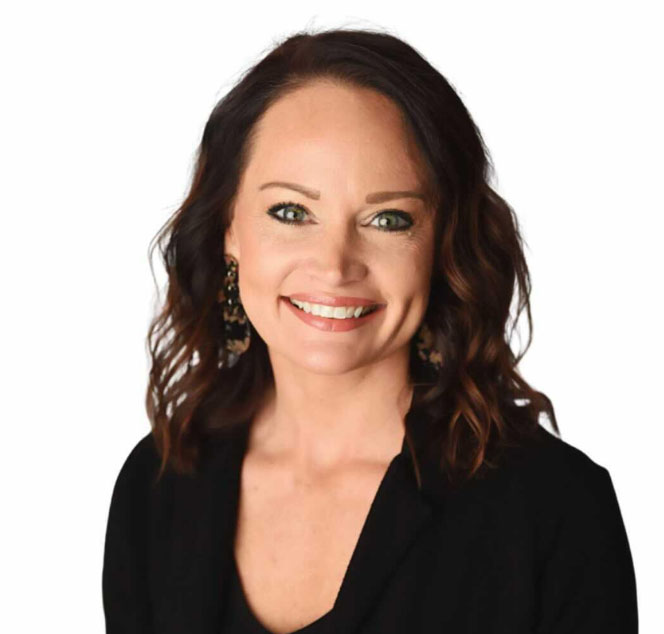
- The Policy Center is led by Joy Burkhard, MBA, an accomplished health policy expert and organizer who spent nearly 25 years working in payor quality improvement and regulatory and legislative compliance.
- Our senior leadership (full-time) includes Kelly Nielson, MPH, Director of Operations and Finance, and Rebecca Britt, MA, Director of Communications and Impact.
- Stacey Porter, MSW, is a full-time employee and leads our training and events program. Our part-time employees include: Cindy Herrick, MA, who serves as our Senior Editorial Manager, Crystal McAuley, our Advocacy and Policy Project Manager, and Brooke Lerman, our Board Project Manager.
- We engage a team of five contractors and interns to support our work.
Board of Directors:




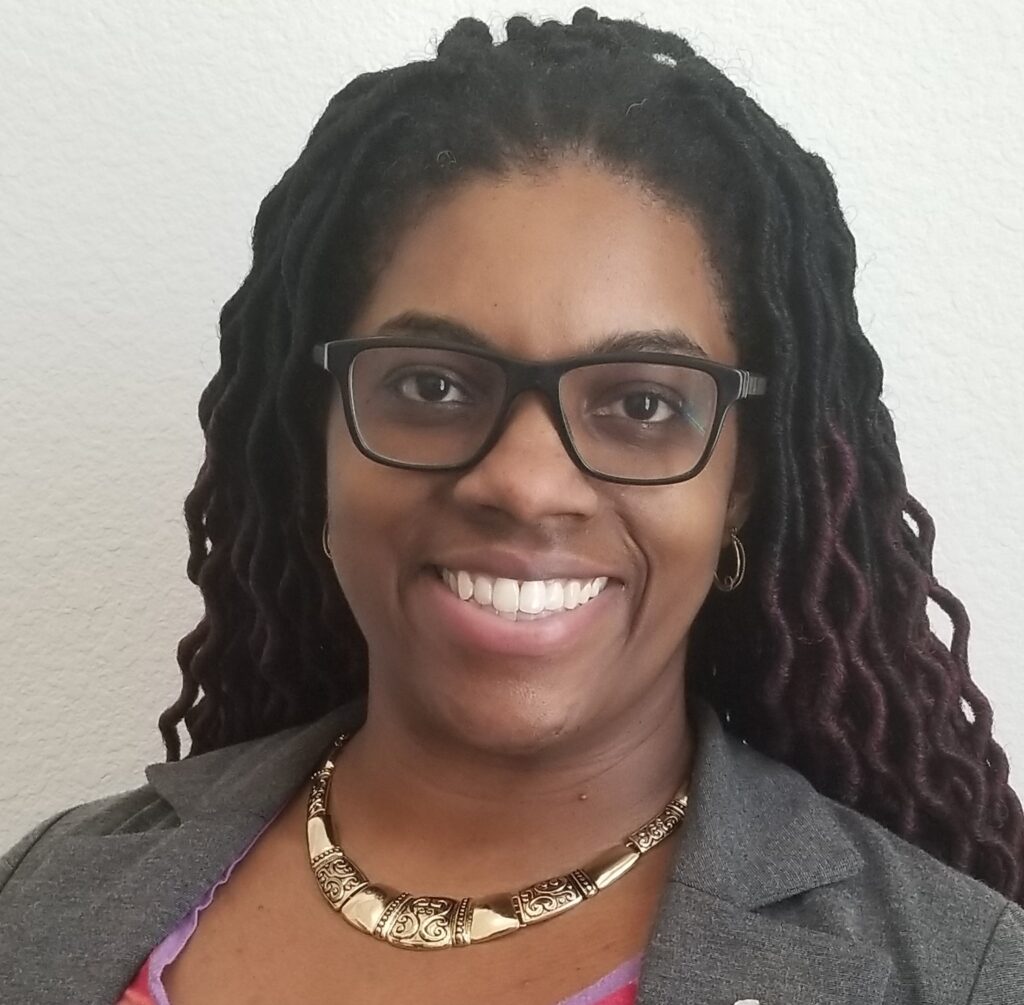







- The 2024-2025 Board is chaired by Carla Eckhardt Taracena, MSc. She is a graduate of Yale University and has vast experience in women’s health and non-profits which has shaped her ability to thoughtfully facilitate impact at the Policy Center, including having worked for the American College of Obstetricians and Gynecologists.
- Other board members include a former philanthropist and mental health policy expert, a health policy professor, a former state legislator, a behavioral health VP, an employer health benefits leader, a head of global DEI, and others.
Our 2024 Accomplishments
Sharing Critical Content:
The FORUM
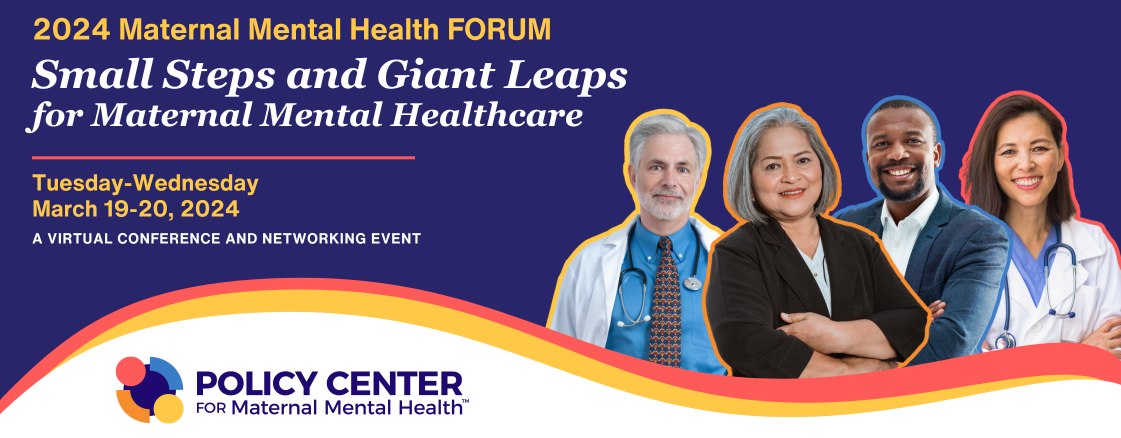
In 2024 we held our 14th annual FORUM March 19-20th and attracted 700+ cross-sector participants from across the U.S. It was our fourth all-virtual event.
In addition to featuring mothers’ stories, the event again drew compelling speakers from entities including the White House, KFF News, the American College of Obstetricians and Gynecologists, Pennsylvania Medicaid, the Purchaser Business Group on Health, and various non-profit and philanthropic partners.
See the images below to learn more about the sessions.
Topics and Speakers
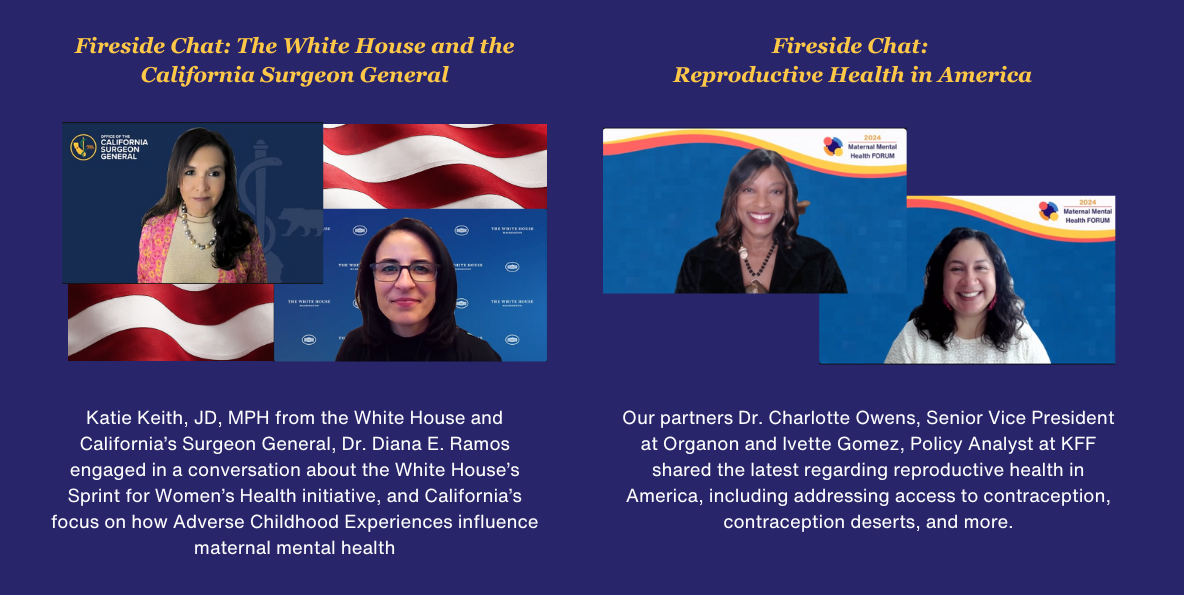
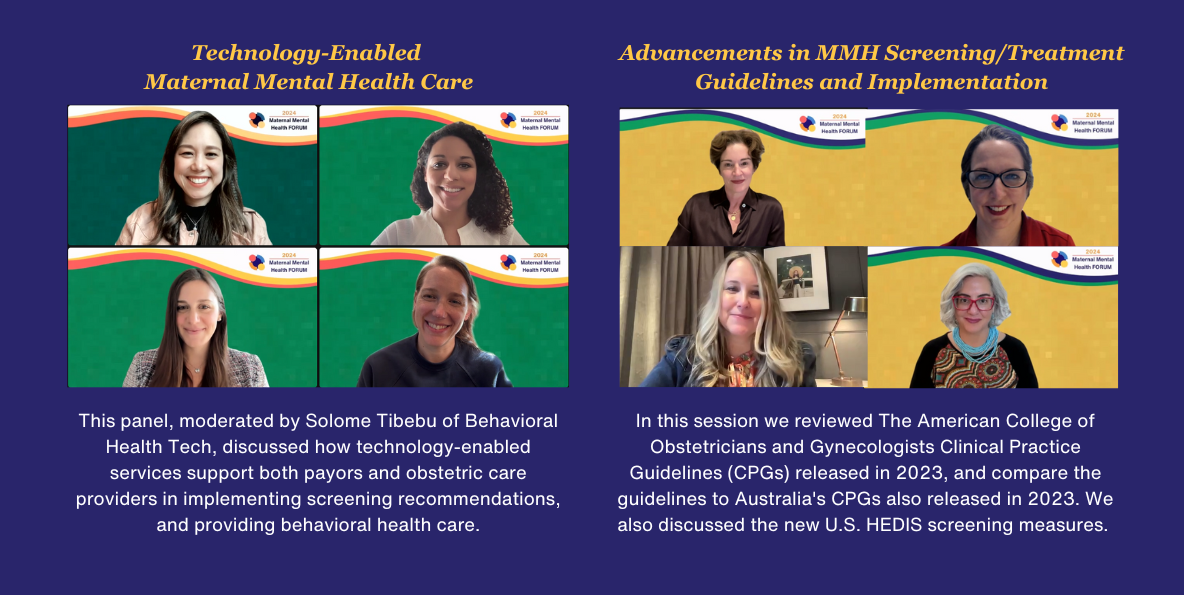
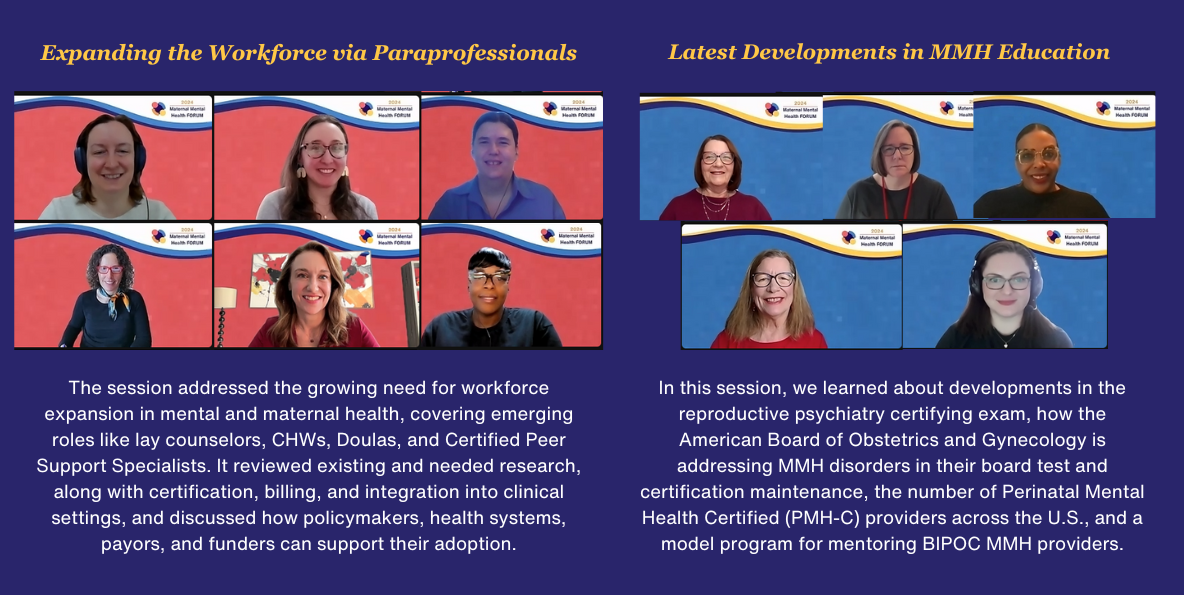
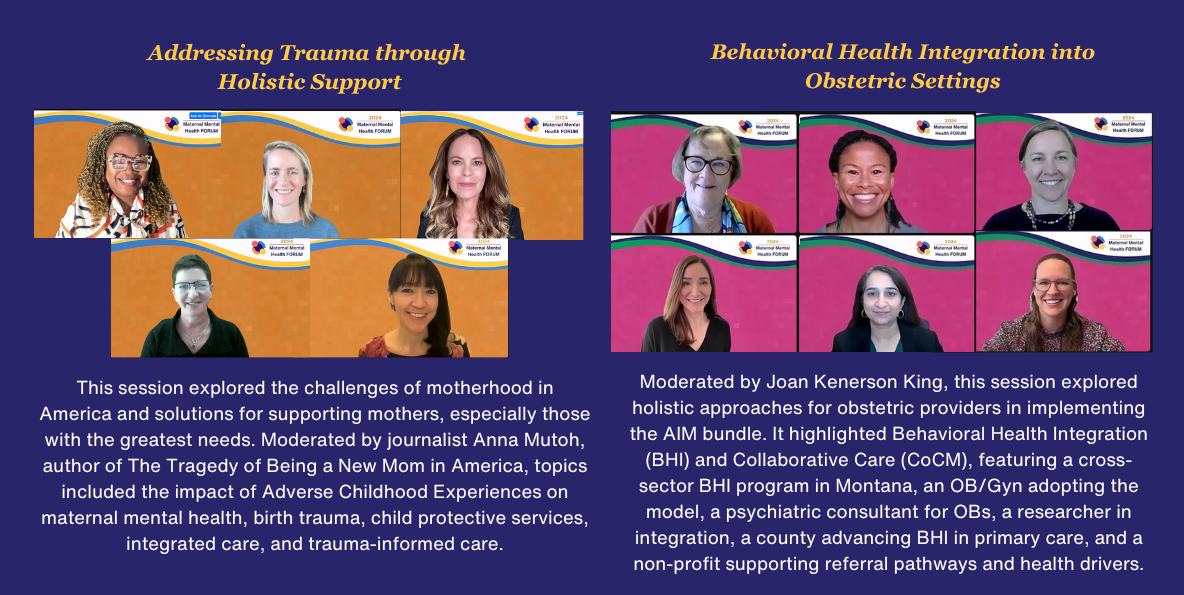
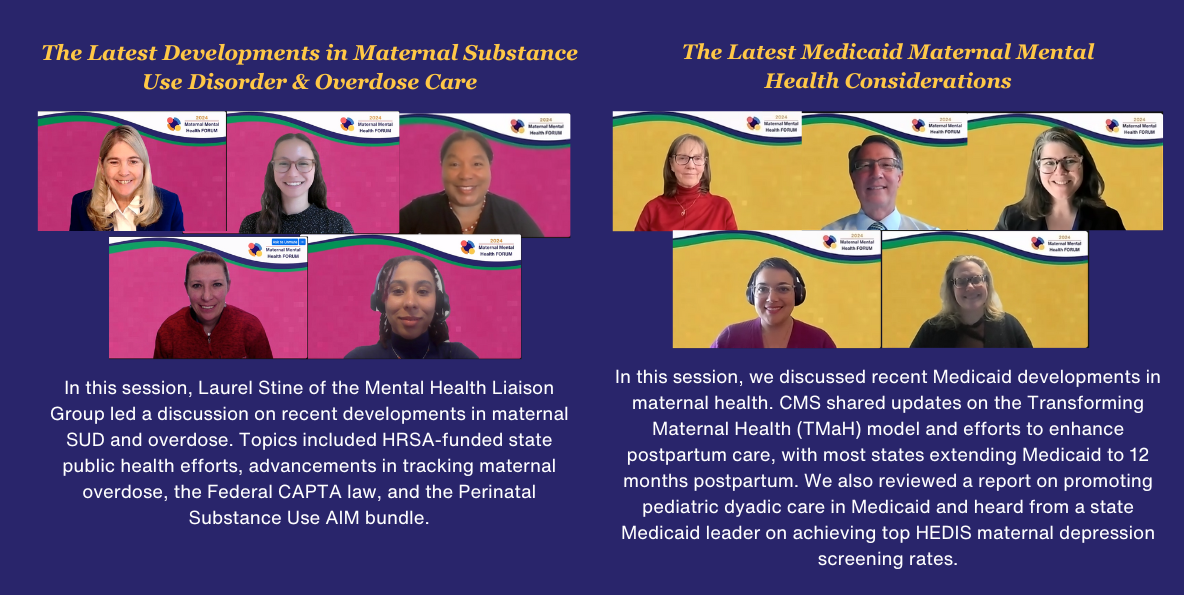
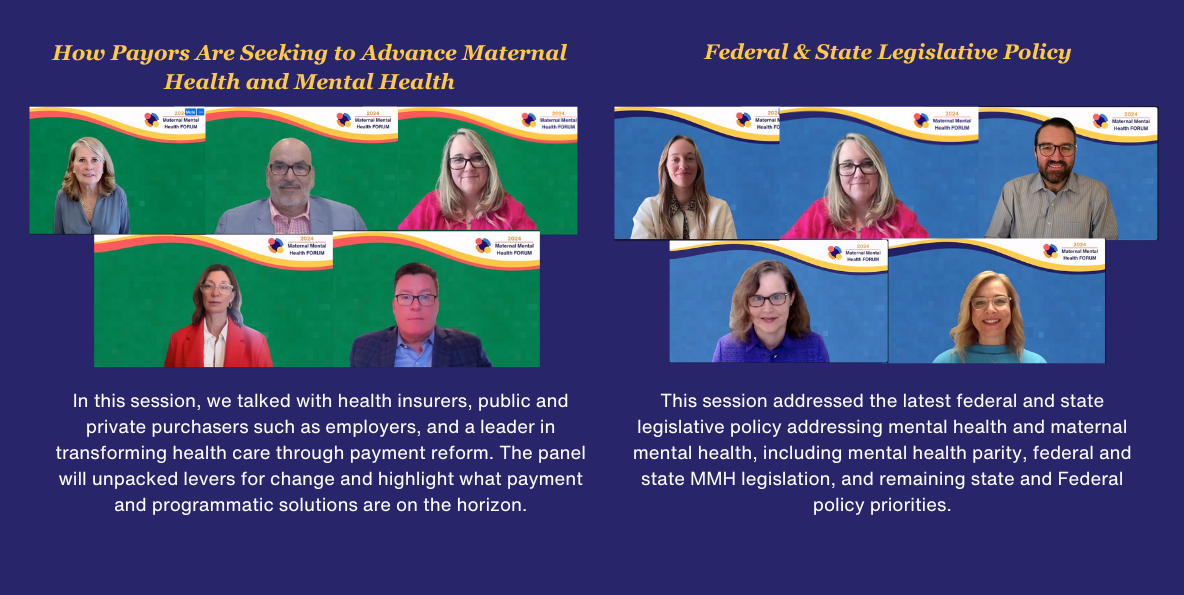
Evaluation and Impact
- 95% of attendees were satisfied with the FORUM content providing insight on evidence-based policy and practice solutions in maternal mental health care
- 88% reported being likely to take one or more actions from what they learned
- 95% were likely to recommend that others attend the FORUM in the future
FORUM Attendees Express Their Gratitude
“As a philanthropic professional at an organization exploring what we might do in the maternal mental health space, this convening was INCREDIBLY INSIGHTFUL! I appreciate the intersectional approach to the content and the diversity of perspectives/roles represented. Beyond the content, I was consistently impressed by the production/logistics of the event. Well done all around!”
— Philanthropic Partner
“Many FORUM discussants mentioned a lack of integration between services, and this FORUM was a prime example of integration! Information from many programs, professional groups, and initiatives were shared, so that all the disparate information came together.”
— Nonprofit Partner
“It was clear that the time is now to make a change in integrating mental health screening, education, referral, and the availability of tangible resources. We are on the heels of heightening the awareness of maternal mental health and we must all work hard to push for education, screening, and reliable resources for mothers, fathers and families impacted.”
— Payor
“Loved the exposure to agencies and organizations throughout the country, that are successfully implementing and providing innovative and tried and true services to individuals and families during the perinatal period – especially for those focused on screening and treating. Also enjoyed the different perspectives and practices from a wide range of stakeholders – nonprofit, for profit, public health, policymakers, etc.”
— Policymaker/Public Agency
“Loved the exposure to agencies and organizations throughout the country, that are successfully implementing and providing innovative and tried and true services to individuals and families during the perinatal period – especially for those focused on screening and treating. Also enjoyed the different perspectives and practices from a wide range of stakeholders – nonprofit, for profit, public health, policymakers, etc.”
— Provider Health Systems
Sponsors
We were grateful for the support of FORUM Sponsors who made this event and our team’s follow-up work possible.
Champion Sponsors:
Luminary Sponsors:
Hero Sponsor:

Advocate Sponsors:



Petite Sponsor:
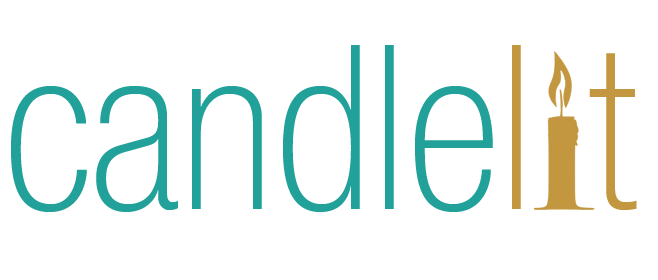
Reports, Issue Briefs, and Fact Sheets
Black Maternal Mental Health Issue Brief
Fact Sheet: Maternal Mental Health – Lay Professionals
2024 State Report Cards
Guide: Obstetric Provider Services Billing and Reimbursement
Re-released Issue Brief: Maternal Suicide in the U.S.
Webinars/Briefings
In 2024, we hosted five webinars and briefings to educate key players and drive action on pressing maternal mental health issues, including two Congressional briefings, a two-part summer webinar series on maternal mental health workforce development, and a webinar hosted alongside the Federal agency.
Congressional Briefing: Saving and Supporting Moms -2024 Maternal Mental Health State Report Cards
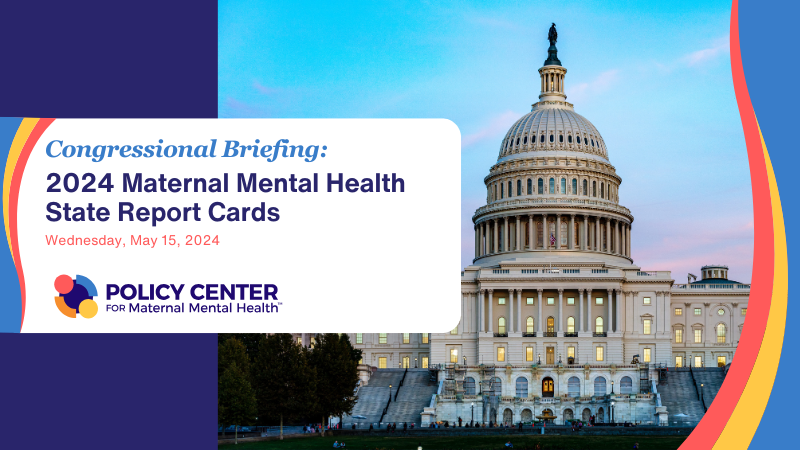
The annual “Saving and Supporting Moms” Congressional briefing was hosted by our project, Mom Congress, in person on Capitol Hill during Maternal Mental Health Awareness Month in May. Among other presenters and topics, The Policy Center unveiled the 2024 Maternal Mental Health State Report Cards.
Summer Webinar Series on Workforce
Part 1: Understanding the Role Nurse Practitioners Can Play in Maternal Mental Health
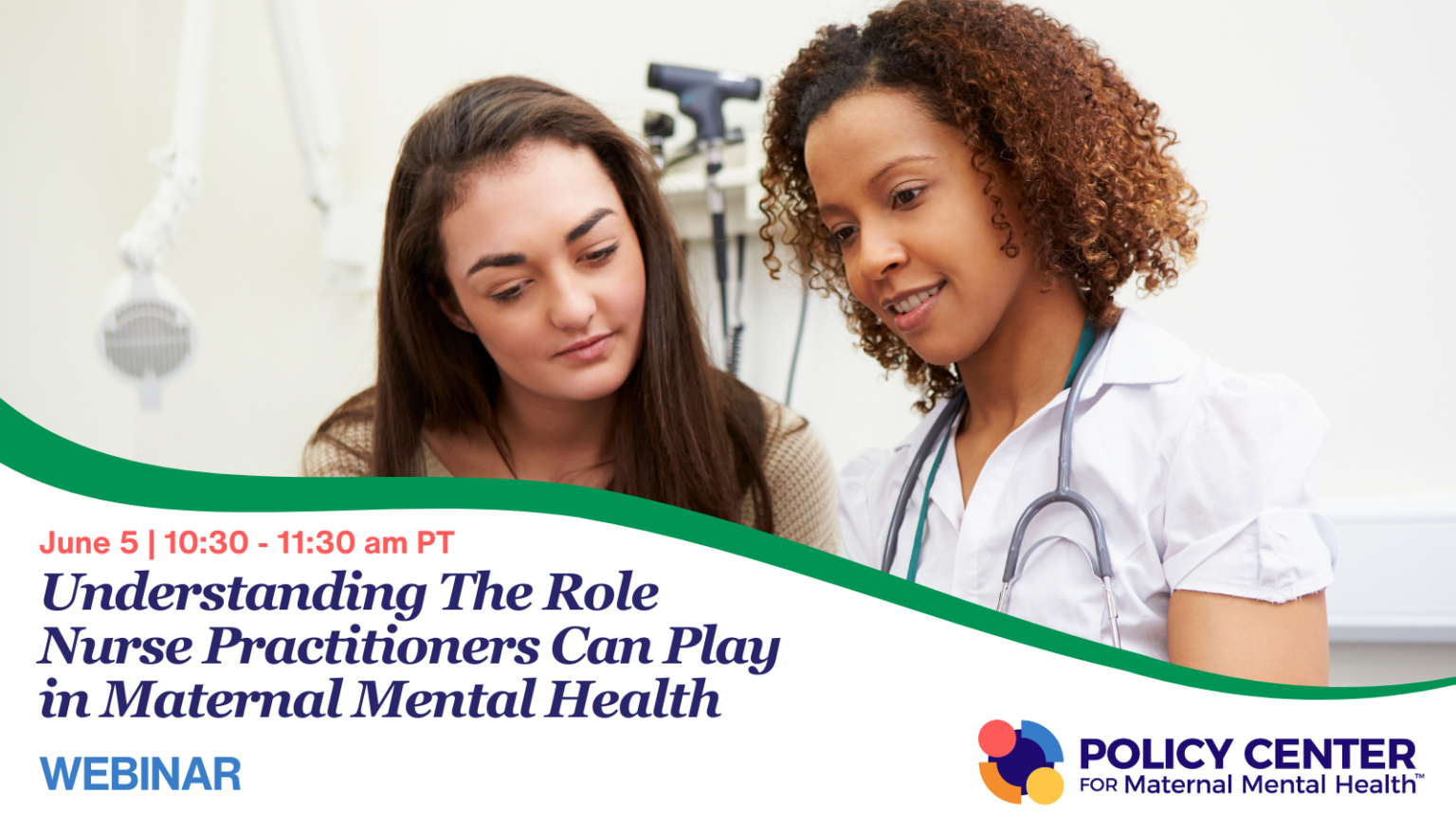
In this webinar, presenters discussed the value psychiatric and women’s health nurse practitioners bring to the field of Maternal Mental Health, including their important role in caring for patients and as prescribers.
150 Views
Part 2: Fireside Chat: Using Peers to Support Maternal Mental Health
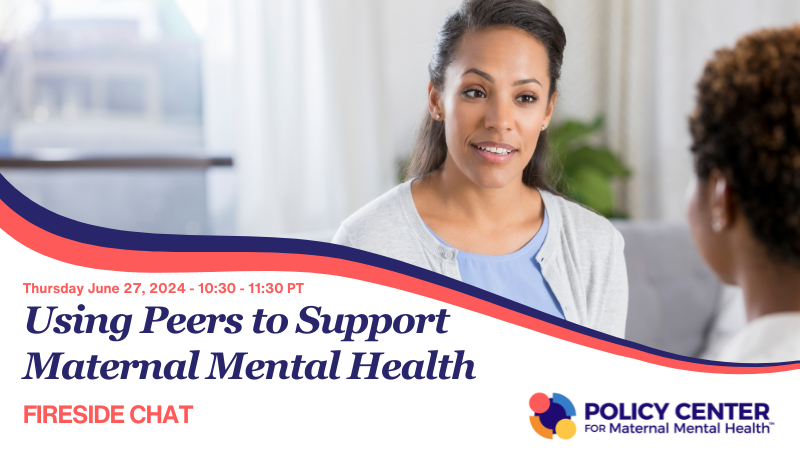
This fireside chat addressed how certified peer support specialists have helped one clinical practice meet mothers where they are and support them while waiting for a therapist, as well as supporting hospitals in providing certified peer support services, starting with supporting expecting mothers who are inpatient due to having high-risk pregnancies and therefore at high risk for anxiety and depression.
1000 Views
Webinar: Mental Health Parity Requirements for Employer Benefit Leaders to Support Maternal Mental Health
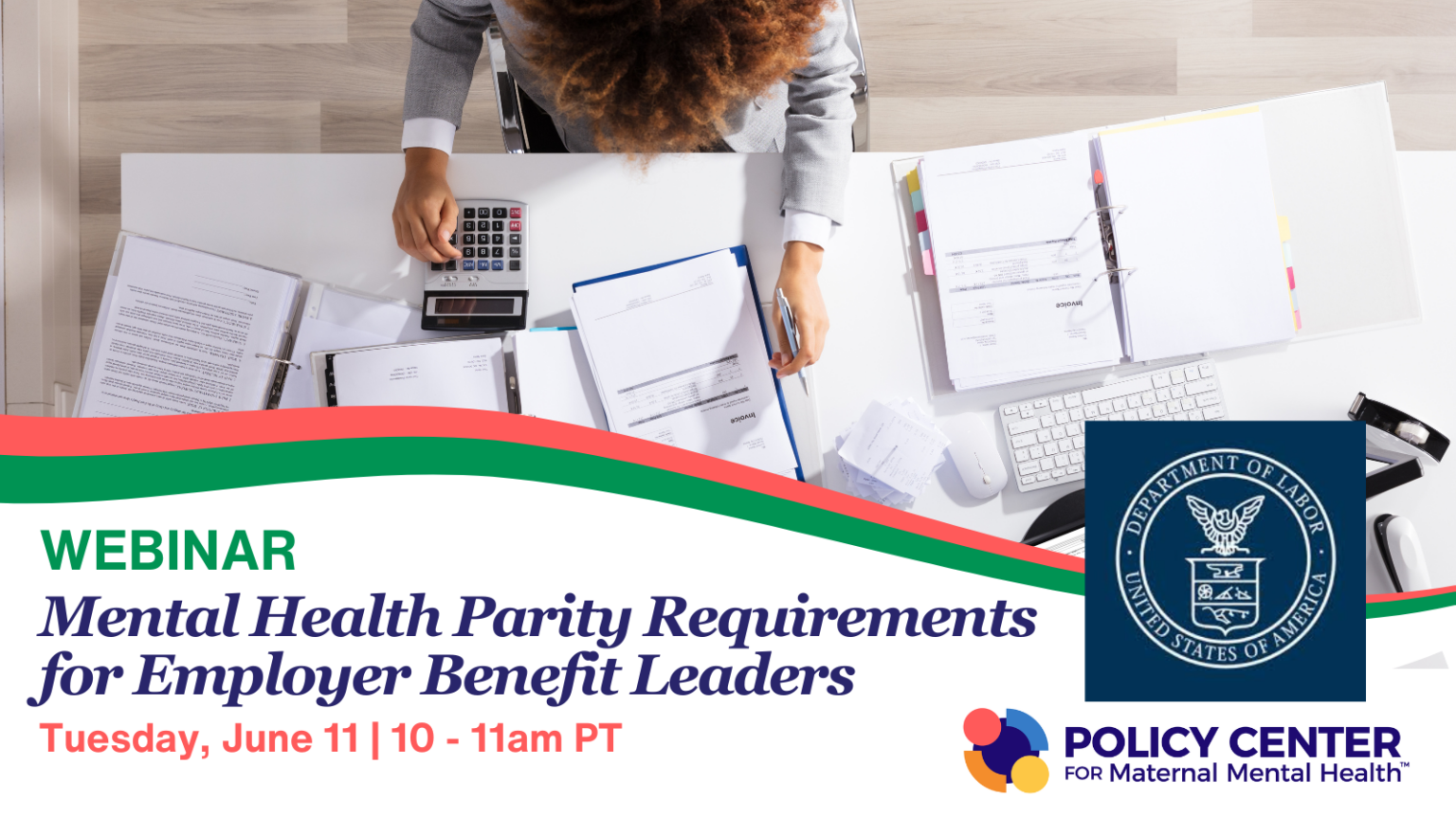
In follow-up to the Policy Center’s focus on mental health parity requirements, the Policy Center and the Federal Department of Labor’s Employee Benefit Security Administration (EBSA) discussed the latest rules and Employer considerations in addressing mental health parity.
Congressional Briefing: Maternal Suicide
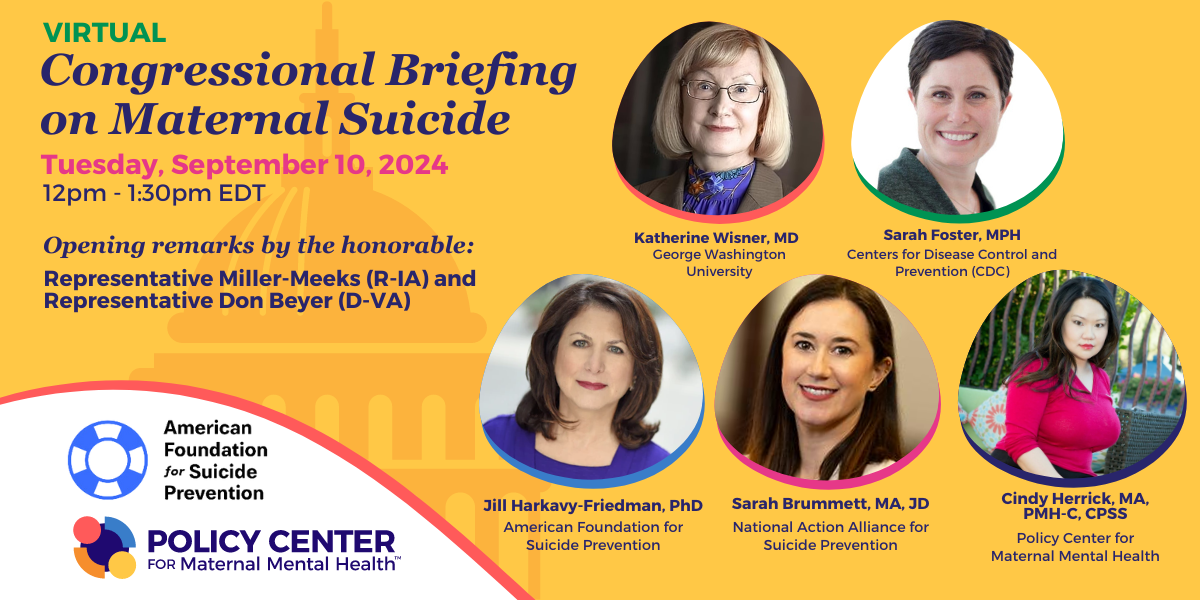
The Policy Center’s re-released maternal suicide issue brief anchored the Congressional Briefing, which we hosted with our partner organization, the American Foundation for Suicide Prevention, on World Suicide Prevention Day, September 10.
441 Views
Tranings to Expand the MMH Workforce
Maternal Mental Health 101 Webinar and Certificate Course Training
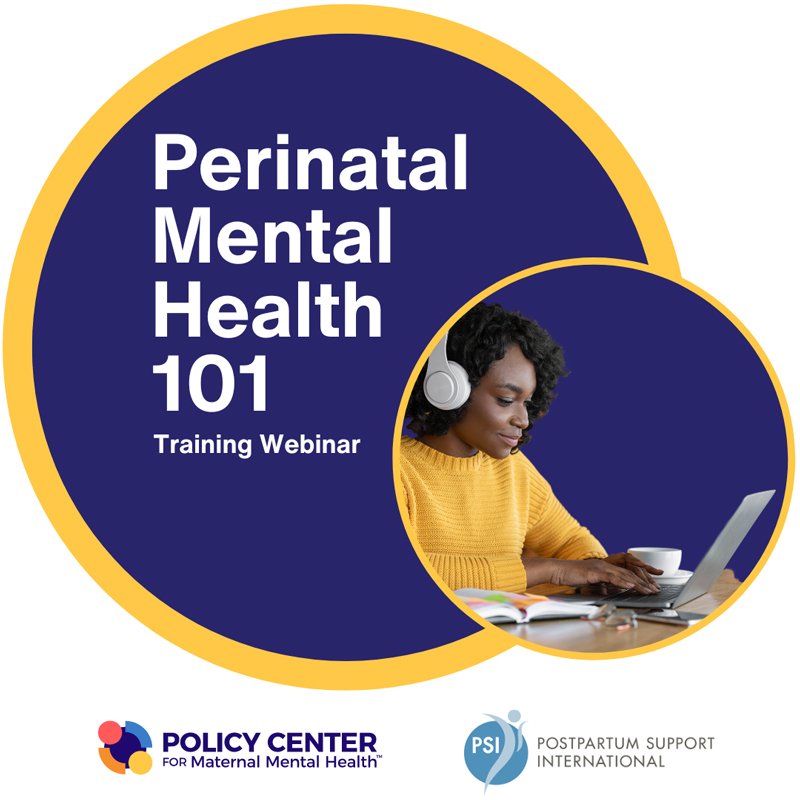
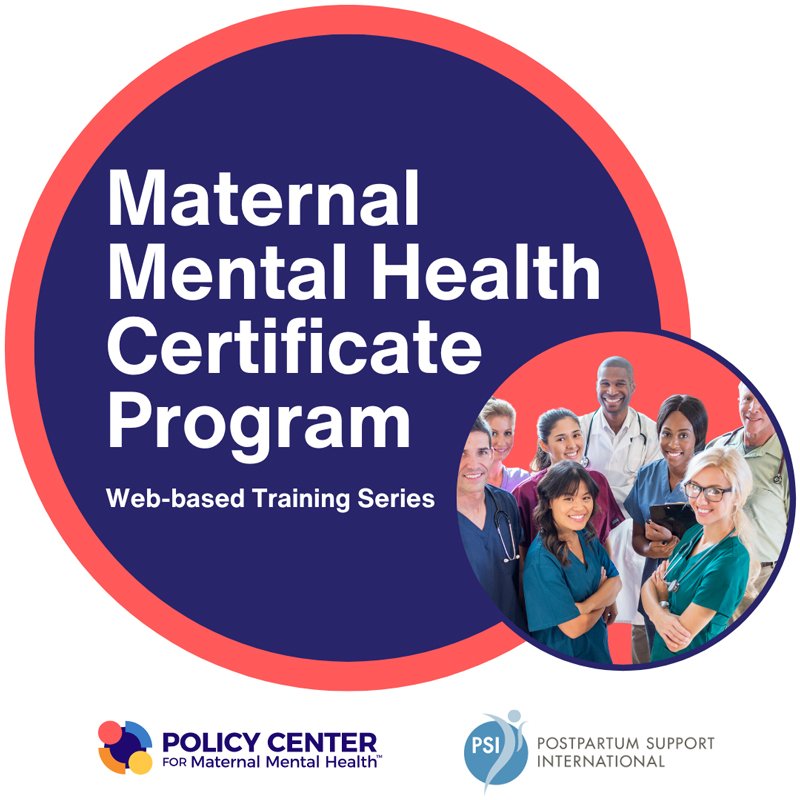
This year, we continued our partnership with Postpartum Support International hosting quarterly Perinatal Mental Health (PMH) 101 webinars and the Maternal Mental Health Certificate Training for Mental Health and Clinical Professionals.
Highlights
Maternal Mental Health (PMH 101)
Four webinars
6792 registrants
MMH Certificate Training Course for Mental Health and Clinical Professionals
Two courses
957 Trained
Scholarships
We provided nineteen 19 certificate training course scholarships to those working for non-profits or who are doulas serving underserved communities.
What our Scholarship Recipients are Saying:
“This training was incredibly impactful on both a personal and professional level. I gained a wealth of updated information, which has been immensely valuable to share with my community. It has been particularly beneficial for the support group led by the peer counselors I supervise. Utilizing this knowledge with my clients has increased my confidence in working with moms and families at this stage.”
-Maria Paz Gonzalez Cordero (2023 Scholarship recipient)
“The Maternal Mental Health Certificate Course was invaluable. This course incorporated approaches to this work that I never considered. This course was well planned and structured to include experts and newly trained advocates and professionals. I would certainly recommend this course!”
-Xaviera L. Bell (2024 Scholarship recipient)
Maternal Mental Health 101 Webinar and Certificate Course Training
Evaluation and Impact
100% reported the training was relevant or very relevant to providing MMH support/services
83% reported it was culturally responsive and inclusive
83% reported they were satisfied or very satisfied with this training overall
50% reported prepared them to support pregnant/birthing people in the future
What participants are saying:
“I really liked the diverse backgrounds of the other peer support specialists and their insight. While I was familiar with the foundation of perinatal MMH conditions, it was awesome to hear about the work of other women in this field and how they are impacting their communities and serving mothers/birthing people”
Commanding Action
Federal Policy
The 2023-2024 Congressional year was an important one for both Federal mental health and maternal health policy.
First Week of May: Maternal Mental Health Awareness Week
This year we partnered with members of Congress to declare the first week of May Maternal Mental Health (MMH) Awareness Week. This was the first time maternal mental health was recognized through an awareness week/month resolution at the Federal level. The resolution was named: House Resolution 1193: Recognizing Maternal Mental Health Awareness Week to raise awareness about maternal mental health and its effects on maternal-child health.
The Maternal Mental Health Task Force Unveils National Action Plan
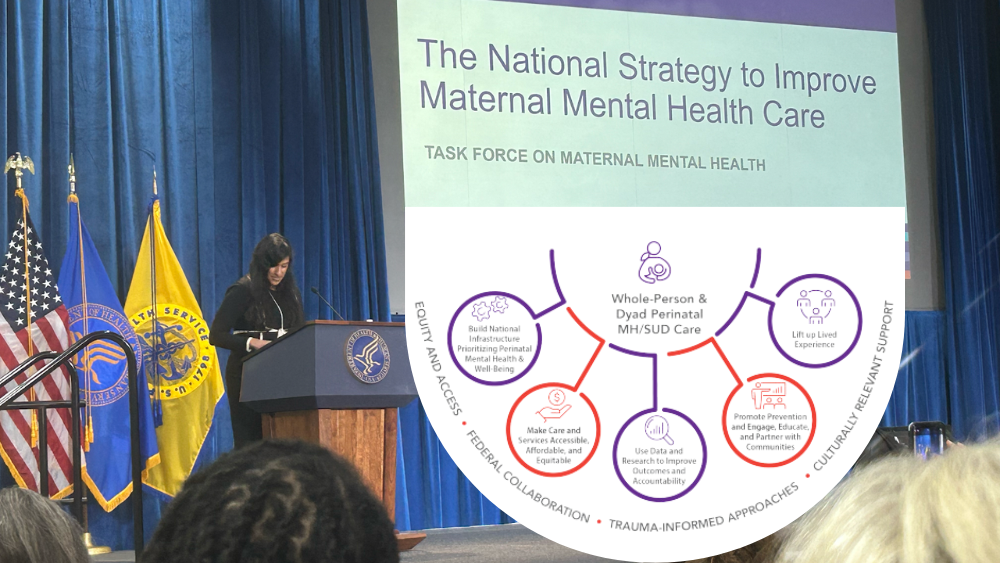
The Federal Task Force on Maternal Mental Health (“the Task Force”), launched in September 2023 and will run through 2027. Nearly 100 cross-sector leaders were appointed to four committees.
We are honored to not only have championed the Federal MMH Task Force through federal legislation passed in 2022, but to shape the work of the Task Force through written opportunities and with our Executive Director serving as a member of three committees.
In May, the Task Force issued its first report to Congress and its first National Strategic plan. The strategic plan includes several important recommendations, including:
- Close maternity care deserts through a new Federal initiative to create Maternity Care Centers (MCCs) to provide obstetric care, birthing facilities, and comprehensive postpartum care.
- Create Federal infrastructure for psychiatric consultation programs so existing programs can be sustained and so all obstetric providers in America have access.
- Address gaps in reimbursement for obstetric providers to screen and treat maternal mental health disorders – align incentives.
Engaging Federal Agencies
In 2024, in addition to engaging with Federal agencies through the Task Force, we continued to engage with key Federal agencies to share insights and shape agency responses. These agencies included:
- Centers for Medicaid and Medicare Services (CMS/CMMI)
- Centers for Disease Control and Prevention (CDC)
- Department of Labor
- Health Resources and Services Administration (HRSA)
- Health Resources and Services Administration (HRSA)
- Substance Abuse and Mental Health Services Administration (SAMHSA)
- White House
Submitting and Signing Comment Letters

Our Comment Letters and Consultations
This year, we led efforts to submit recommendations for these four national efforts:
- Comment Letter to the Maternal Mental Health Task Force
- Recommendations to the Congressional Bi-partisan Paid Leave Working Group
- Policy Center Urges NCQA to Require Mandatory HEDIS Screening Rate Reporting
- Response to the Federal Government’s Proposed Health IT Maternal Health Data Set
- Providing consultation to the Senate HELP Committee regarding financial barriers to screening for maternal mental health disorders
This year we also supported other non-profit’s aligned efforts, by signing on to 50 additional letters.
Updating the Field on Policy Development
To ensure that the field had access to the Federal developments impacting the field, the Policy Center tracked and synthesized these activities by publishing thirteen articles this year:
- States Receive Additional Funding from HRSA to Address Maternal Mental Health
- My Testimony in Favor of Tracking How Often Prenatal Depression Screening Occurs
- New Federal Maternal Mental Health Bill Introduced Requiring Mental Health Coverage with No Cost Share for the Privately Insured
- Mental Health Parity and Payment, Considerations for Maternal Mental Health
- Newborn Essentials Support Toolkit (NEST) Act to Relieve Financial Stress for Mothers and Families across the U.S.
- Progress Report on the White House’s Maternal Health Blueprint
- $15 Million in Federal Funding Available for Community Based Maternal Mental Health Care Coordination
- Response to the Federal Government’s Proposed Health IT Maternal Health Data Set
- CMS Proposes New Maternal Health Hospital Requirements
- New Substance Use Disorder Confidentiality Regulations: What It Means for Providers and Pregnant Patients
- Long Awaited Federal Mental Health Parity Rules Released
- White House Briefing: 30th Anniversary of the Violence Against Women Act
- First Lady Announces $500 Million Commitment to Women’s Health Research
State Policy Tracking
The Policy Center continued to track live and enacted state legislation. We also created a report analyzing state laws that were enacted this year, highlighting and categorizing the twelve laws addressing maternal mental health.
Communities of Practice
State Policy Fellows Programs
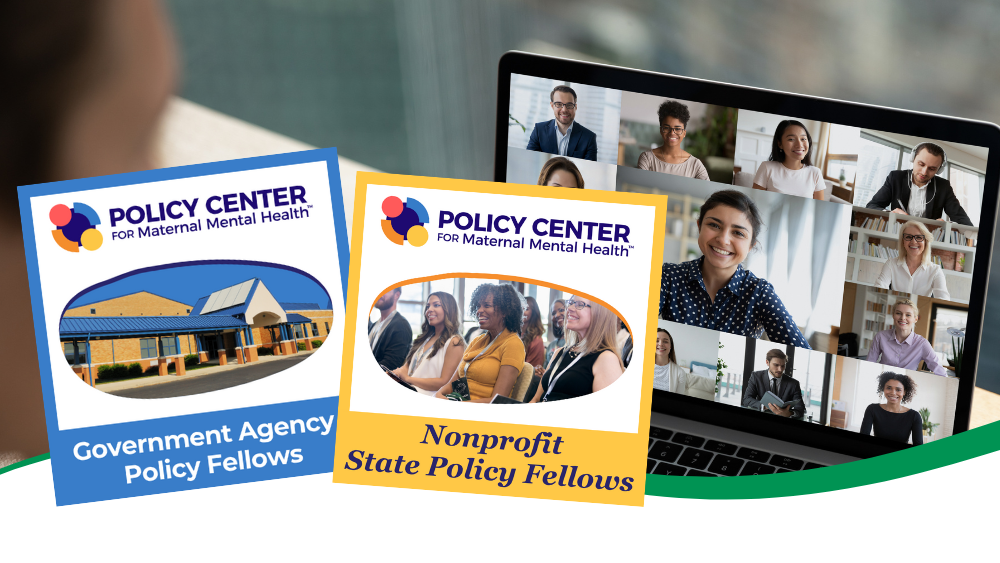
The Policy Center’s two Fellows programs (Government Agencies and Non-Profit) provide 12 months of training in learning community settings, covering a core set of topics with presentations and ample time for robust discussions. The Fellows are charged with creating action plans based on our model legislation and state report cards.
- The Non-profit State Policy Fellows program aims to assist backbone organizations in developing a foundation for regulatory and statutory policy change to close gaps in maternal mental health in their states.
- The Government Agency Fellows program aims to assist state Medicaid, behavioral/mental health, and public health departments in closing gaps in maternal mental health through systemic change that supports plans, providers, and community-based organizations in delivering care.
The Fourth Cohort of Nonprofit State Policy Fellows Class Graduates

The 2023-2024 cohort graduating class included 18 participants from the following eight states and territories: Alabama, Indiana, New Hampshire, New Mexico, New York, North Dakota, Pennsylvania, and Virginia.
Examples of Action Plans:
North Carolina
North Carolina nonprofit fellows from Postpartum Support International’s (PSI) NC chapter developed a substantive action plan using the Policy Center’s state policy “recipe”:
- Passed an awareness resolution in Elizabeth City, NC, and then a statewide governor’s proclamation for May as Maternal Mental Health Month, utilizing the Policy Center’s model state legislation.
- Utilized the Policy Center’s state task force model legislation to create a statewide Maternal Mental Health Task Force.
- Partnered with March of Dimes North Carolina to introduce and advocate for legislation focused on perinatal mental health provider workforce diversification and development.
- Once the personnel are in place, their ultimate aim is to pass a law mandating obstetric provider screening, reimbursement, and measurement, for which they have already garnered interest among NC legislators.
“PSI North Carolina is extremely appreciative of this program. Because of the Fellows program, we proclaimed May as maternal mental health month in perpetuity, established a statewide MMH task force…I’m extremely appreciative of the opportunity to take part in this program and can state with certainty that we would not be where we stand today as a committee without the support of the Fellows program.”
— Erin Crites, Postpartum Support International – North Carolina chapter
Washington DC
The Washington DC Fellows from Mary’s Center were focused on researching the status of the Perinatal Mental Health Task Force, which the city had passed a resolution to form in years prior but which stalled during the Covid crisis.
- With their investigation and research, they were able to support prioritizing the formation of the task force. They provided feedback along with others to help shape new PMH Task Force legislation in the spring and summer of 2022.
- The task force legislation was reintroduced in the fall of 2022 and funded to complete its work by 8/31/2023. This task force work concluded in the Fall of 2023, and the report was published in January 2024.
- This work is now being carried on in the Maternal Health Advisory Group, in which one of the two fellows continues to be involved. This fellow is also co-chairing work with the DC Perinatal Quality Collaborative on the implementation of the AIM Perinatal Mental Health bundle.
“The Nonprofit State Policy Fellows Program provided a learning space for me to grow in my understanding of advocacy. After completing the fellowship, I am comfortable speaking up more readily within the communities where I live and work to champion perinatal mental health-related policy change.”
— Andrea Agalloco, Mary’s Center
The Third Cohort of Government Agency Fellows Graduates

Our 2023-2024 graduating cohort of Government Agency fellows included 6 participants from 3 states and counties, including Alabama, New York, and Utah.
Examples of State Impact
Virginia’s Action Plan (2023-2024)
The Virginia Government Agency fellows from the state’s Department of Health (VDH) action plan included:
- Enhancing data and surveillance related to maternal mental health indicators to inform Virginia’s Title V Maternal and Child Health State Action Plan and five-year needs assessment. The fellows developed a program to implement the bidirectional linkage of care model between pediatric and obstetrics clinics to support new mothers with mental health needs.
- VDH completed the development of a social support group class curriculum addressing pregnancy, delivery, and the postpartum experience (including MMH) rolled out through this network of providers.
- They are actively engaging policymakers about gaps in maternal mental health-related legislation.
“The Fellows Program helped Virginia to develop a comprehensive office-centered maternal mental health action plan that included improvements and expansion in prevention and education, data to action, and policy change initiatives. This plan will help inform the larger Maternal Health Strategic plan that the Office will plan to update. The Fellows Program also supported advancements in collaboration within Virginia’s injury and violence and maternal and child health teams to more holistically support maternal mental health and well-being.”
— VA Government Agency Fellows
The Next Nonprofit State Policy Fellows Cohort Starts
Nonprofit Policy Fellows
In July of 2024, we launched the fifth cohort of our Nonprofit State Policy Fellows, our largest cohort to date, with participants from California, Connecticut, Georgia, Kentucky, Louisiana, Maryland, Missouri, Nebraska, New Jersey, Oklahoma, Oregon, South Carolina, Tennessee, and Vermont.

The Next Government Agency Fellows Cohort Starts
In July of 2024, we launched the fourth cohort of our Government Agency Fellows program for agencies well-positioned to implement program and policy change in their Medicaid, behavioral/mental health, or public health departments. This includes 11 state Medicaid agency representatives. This is our largest cohort to date, and participants include representatives from Arizona, Iowa, Kansas, Kentucky, Louisiana, Maine, Massachusetts, Minnesota, Nevada, Oklahoma, Rhode Island and West Virginia.

Co-Laboratory
Our Co-Laboratory projects and research are conducted with collaborating organizations to advance change.
Embedding Community Health Workers into Obstetric Clinics to Increase Capacity to Provide MMH Care

In partnership with CommonSpirit Health and with funding from the Cigna Foundation, California Health Care Foundation, Flourish Impact Fund, and the Esther A. & Joseph Klingenstein Fund, this pilot is in the planning stage and will study the impact of ‘Embedding Community Health Workers (CHWs) in Ob/Gyn Clinics to expand Ob/Gyn Capacity’ to address maternal mental health disorders. CHWs will support screening, provide brief intervention, support the patient and OB/Gyn with treatment plan development, and provide care coordination. Implementation will begin in 2025.
Supporting Other Organizations
We were honored to speak with various organizations through webinars and conferences this year. Highlights include:
- The Association of Maternal Health Programs (AMCHP) Annual Conference
- Alliance for Innovation in Maternal Health (AIM) Technical Assistance Webinar
- The National Academies Workshop on Essential Health Care Services Related to Anxiety and Mood Disorders in Women
- Purchaser Business Group on Health, Maternal Health Summit
- Clinton Global Initiative Meeting on Financing Postpartum Care
Our CEO, Joy Burkhard, was also asked to participate in various convenings seeking insights from experts, including those hosted by:
Further, she is an active leader in the Mental Health Liaison Group, including the following working groups:
- Co-chair of Peer Support
- Member of Mental Health Parity
- Member of Behavioral Health Integration (BHI)
Joy also serves as a board member of:
- The California Maternal Quality Care Collaborative – an organization leading quality improvement initiatives to reduce maternal mortality, and morbidity
- The Health Care Transformation Task Force which is leading work on healthcare finance reform
Policy Center 2024 Financials
General Overview
Our fiscal year runs from October 1st to September 30th. Our overall budget this fiscal year was $915,268. The Policy Center’s main source of revenue is philanthropic support, followed by earned income from our provider training and FORUM revenue. Our primary expenses are staffing and contractor support.
Below is a detailed overview of our finances.
TOTAL REVENUE
$1,368,000
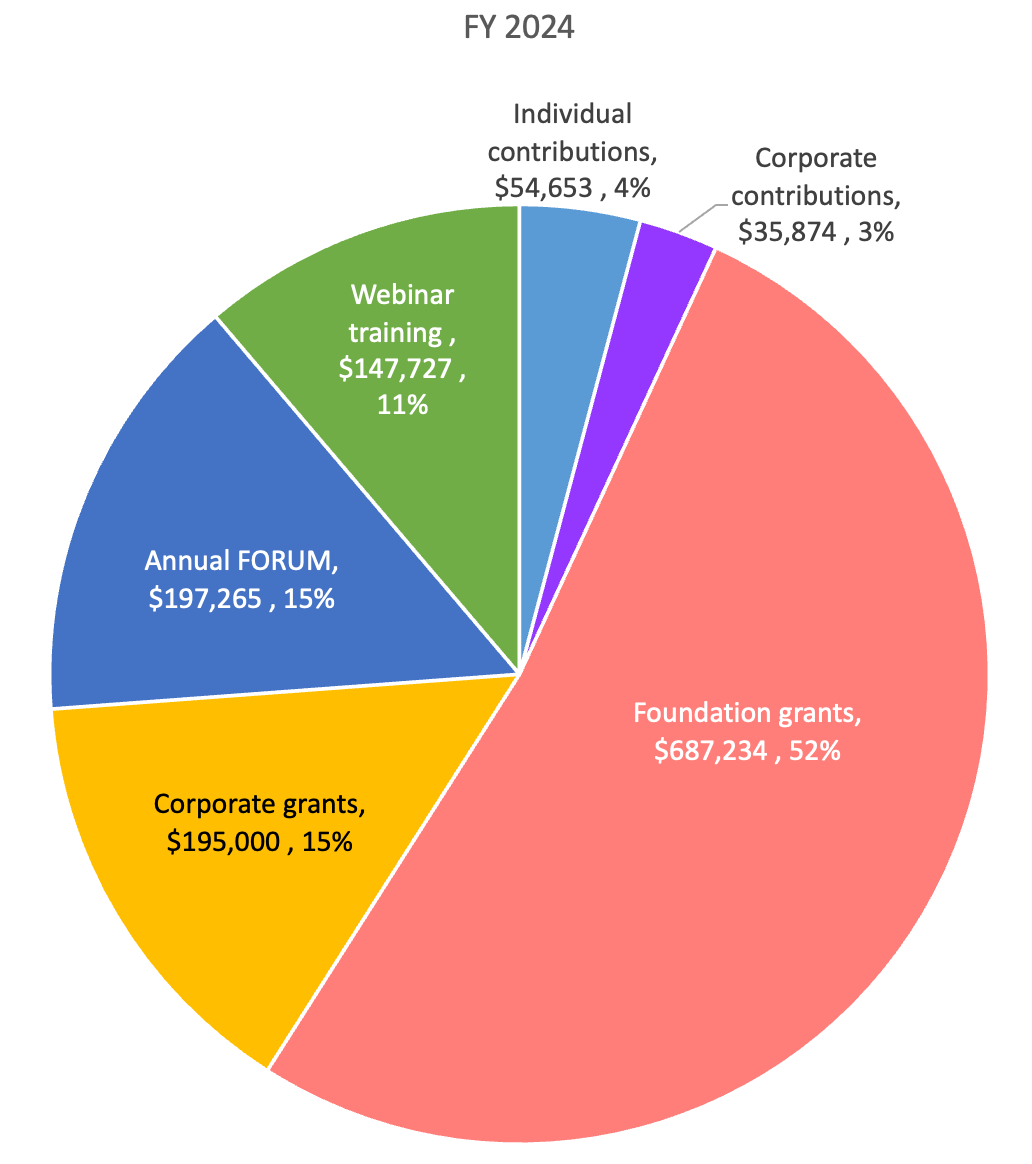
EXPENSES BY CATEGORY
$915,268
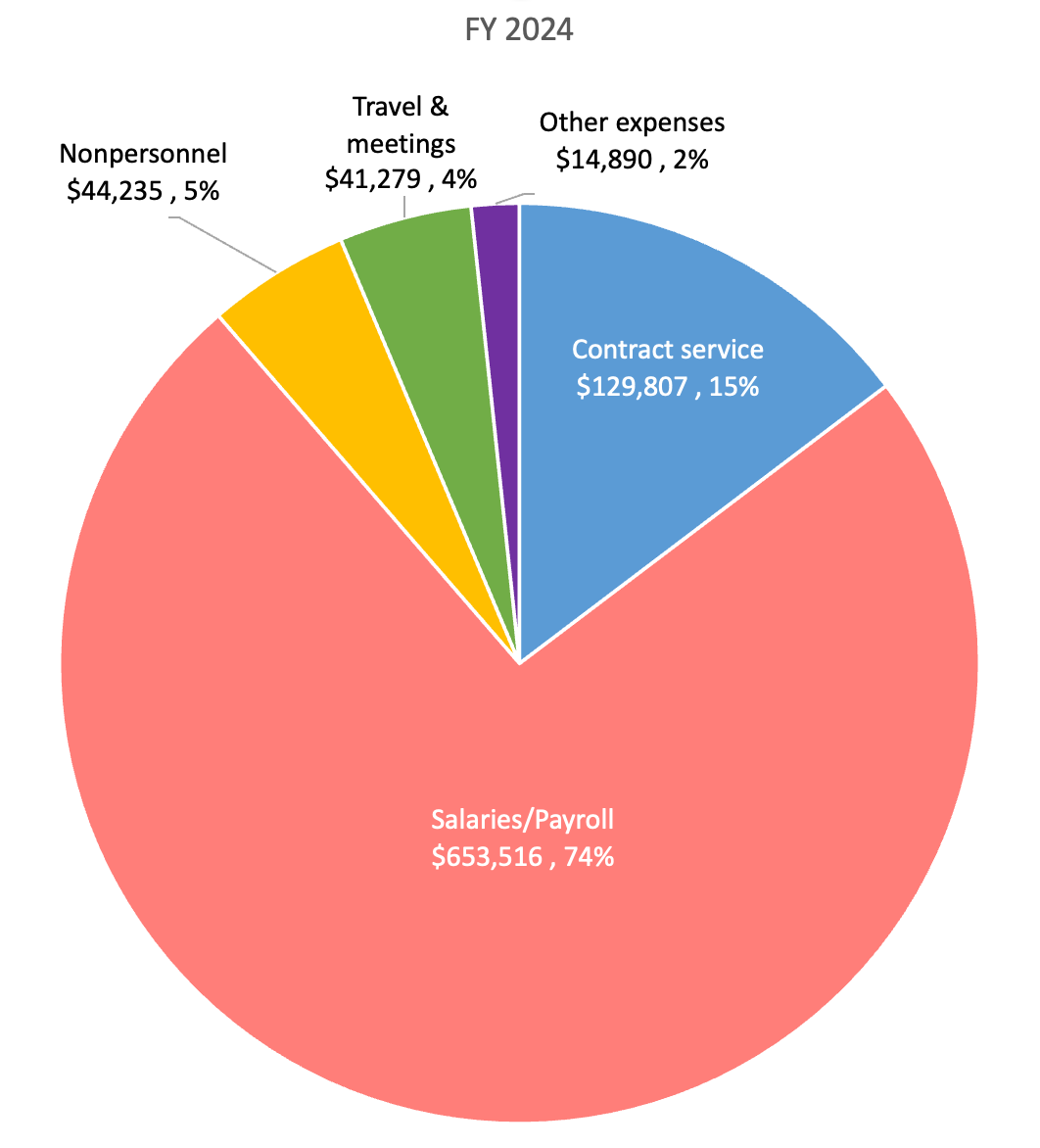
Expenses by Program
- Commanding Action: $181,056 (State and Federal advocacy, letter writing, policy blogs)
- Co-Laboratory: $73,110 (Embedding CHWs in OB Clinics Pilot)
- Critical Content Development: $113,947 (Reports and briefs, including annual MMH State Report Cards)
- Communities of Practice: $49,981 (Fellows Programs)
- Mom Congress: $177,412
- All other program expenses (program development, eNews, website, etc): $220,535
Philanthropic Partners
We are incredibly grateful for funding from the following organizations who make our work possible:
Capacity Funders:
Perigee Fund (Federal Policy)
ZOMA Foundation (Insurance and Payment Reform)
Project Funders:
California Health Care Foundation (Ob/Gyn-CHW Screening Capacity Pilot)
Cigna Foundation (Ob/Gyn-CHW Screening Capacity Pilot)
Esther A. & Joseph Klingenstein Fund (Ob/Gyn-CHW Screening Capacity Pilot)
Flourish Impact Fund (Ob/Gyn-CHW Screening Capacity Pilot)
Sage Therapeutics (Fellows and Reporting)
W.K. Kellogg Foundation (Mom Congress)
Individual Donors
This year, the Policy Center raised $54,653 from individual donors.
We are extremely grateful to our top individual donors, which include:
$1,000+ Donors
Bacus Family Fund
Jaime Cabrera
Rosanna Durruthy
Laura Keller
Carole Mendoza
Suzanne Nelson
Nya Stilwell
$500-$999 Donors
Sheryl Connelly
Kari Earle
Carla Eckhardt Taracena
Wallace Torres
Reflections on 2024 & Strategic Vision for 2025
The year 2024 was a pivotal one, marking a tipping point for the field as cumulative changes began driving a significant shift in awareness and investment from cross-sector stakeholders.
Looking ahead to 2025, we anticipate an even more rapid acceleration into a transformative phase of progress.
Amid the growing complexity of challenges that remain unresolved, the role of the Policy Center will be more critical than ever in providing leadership and strategic guidance.
To this end, our 2025 objectives include expanding outreach to government leaders and policymakers, as well as broadening visibility through earned media channels.
Following the release of the Federal Mental Health Task Force’s inaugural report and strategic plan to Congress in 2024, we will webcast the 2025 MMH FORUM from Washington, D.C. in March with Task Force leaders and other systems players. The FORUM will feature a solutions-focused format designed to rally the field around actionable steps for implementing the Federal action plan.
Beyond the FORUM, these efforts will continue with the relaunch of the National Maternal Mental Health Coalition, which we previously led from 2014 to 2017.
In addition, the Task Force will deliver its preliminary recommendations to governors in 2025. To support this, we aim to publish comprehensive state and Federal maternal mental health (MMH) policy guidance in collaboration with nonprofit partners serving state government leaders. In doing so, we will aim to provide enhanced technical assistance to ensure the efficient and effective implementation of these recommendations.
In closing, we are confident and energized by the opportunities ahead.
With the right financial support, we will be well-positioned to drive meaningful policy and systems change at both the Federal and state levels in 2025.
We invite you to join us on this journey by making an investment today. Your support is essential—now is the time to advance maternal mental health.

Joy Burkhard, MBA
